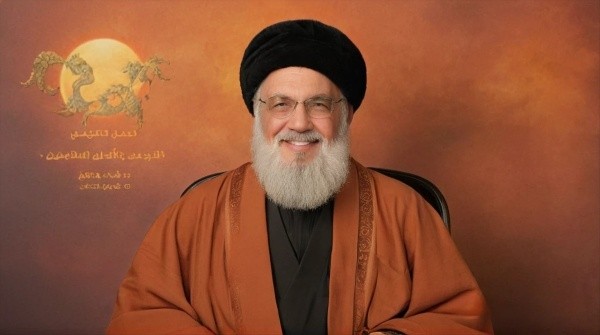Iran’s Plan to Strike Back Against the U.S.
Iran’s Military Preparations Following U.S. Attacks
Loading...

After Hezbollah strike on Israeli intelligence site, its leader says time will tell if ‘deterrence’ has been restored.
In a recent televised address, Hezbollah leader Hassan Nasrallah spoke after a significant exchange of fire between Hezbollah and Israel. This confrontation was initiated by Hezbollah's attack on an Israeli intelligence site, which they framed as retaliation for the assassination of their senior military commander, Fuad Shukr, in Beirut last month. Israel, on the other hand, claimed to have conducted a preemptive strike on Hezbollah positions prior to the attack, asserting that no substantial damage was inflicted on their side.
1. Hezbollah's Intent to Avoid Escalation
Nasrallah emphasized that Hezbollah aims to prevent a broader military escalation. Since the onset of hostilities on October 8, fears have grown that the conflict could spiral into a regional war involving Iran and the United States. The recent attacks were seen as a calculated move by Hezbollah to avoid provoking a large-scale Israeli response. Nasrallah expressed satisfaction with the operation, suggesting that it successfully targeted Israeli military and intelligence sites. He indicated that if Hezbollah's actions restored deterrence, it would limit Israel's aggressive maneuvers in Lebanon moving forward.
2. Targeting Israeli Intelligence
The primary target of Hezbollah's recent attack was identified as the Glilot base, located north of Tel Aviv, which houses the Mossad and military intelligence unit 8200. Nasrallah accused Israeli intelligence of being responsible for the assassinations of Hezbollah commanders, asserting that the attack penetrated deeper into Israeli territory than previous strikes, which had mainly affected northern Israel and the Golan Heights. He rejected Israeli claims that the attack was unsuccessful, insisting that the operation was executed as planned and that Israel was concealing the extent of the damage inflicted.
3. Delay Due to Strategic Considerations
Nasrallah revealed that the timing of the attack was influenced by several factors, including the need to assess Israeli and U.S. military deployments and to create a sense of fear among the Israeli populace. He also noted that discussions within the "axis of resistance"—an alliance of Iranian-backed groups—delayed the attack as members debated whether to strike Israel simultaneously or independently. A significant reason for the postponement was to allow for potential ceasefire negotiations regarding Gaza, which ultimately proved fruitless, prompting Hezbollah to act.
4. Countering Israeli Narratives
In his address, Nasrallah took the opportunity to challenge various Israeli claims regarding the conflict. He dismissed insinuations that Israel had prior knowledge of Hezbollah's attack and that their preemptive strikes had mitigated its impact. Instead, he argued that Israeli forces had only reacted to movements near the border and had not successfully targeted Hezbollah's operational sites before the attack commenced. He also clarified that Hezbollah had intentionally limited its initial strike to approximately 300 rockets, countering Israeli assertions of a much larger assault.
5. Focus on Military Targets and Civilian Safety
Nasrallah made it clear that Hezbollah's operations were aimed solely at military and intelligence targets, deliberately avoiding civilian areas, including critical infrastructure like Ben Gurion Airport. He acknowledged the prevailing fear in Lebanon following the assassination of Shukr and the potential for an all-out war with Israel. However, he reassured the Lebanese people that they could now "take a breath and relax," suggesting that the immediate threat had been addressed.
In summary, Nasrallah's speech reflects Hezbollah's strategic calculations in the ongoing conflict with Israel, emphasizing deterrence, targeted military operations, and a cautious approach to escalation. The coming days will reveal whether these actions will indeed alter the dynamics of the conflict and maintain a fragile peace in the region.
Editor
Iran’s Military Preparations Following U.S. Attacks
Troops remain in five strategic locations, raising fears of renewed tensions and long-term occupation.
Opposition forces have taken control of the capital after a significant offensive. Here is how it unravelled.
